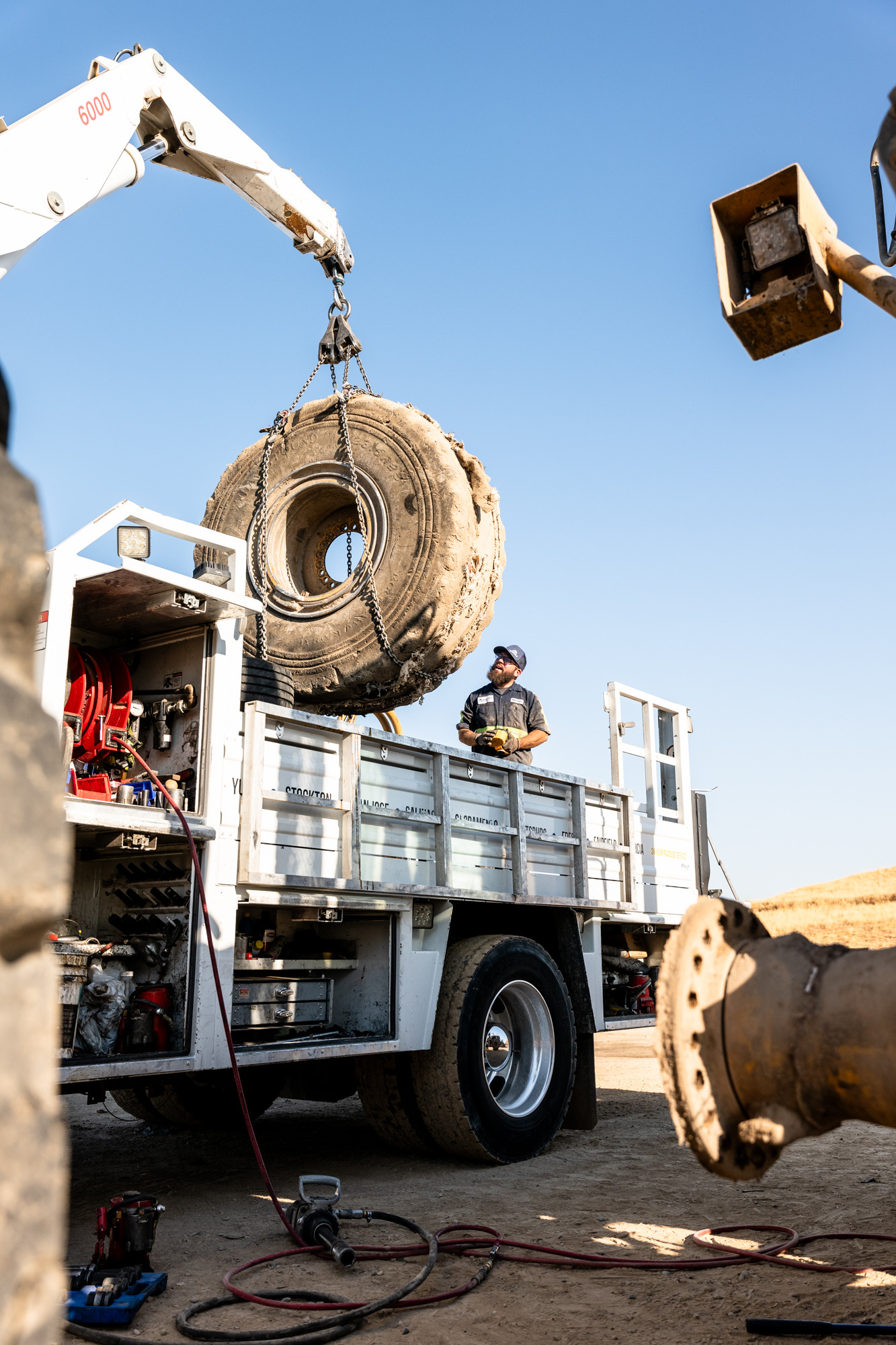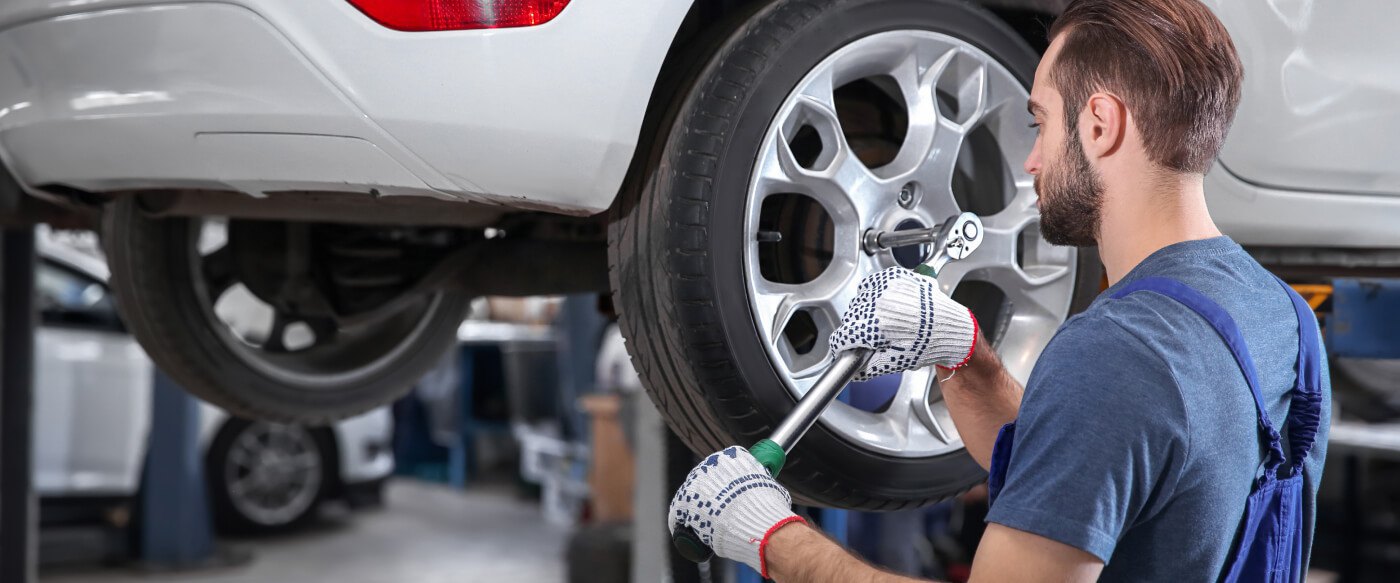Maintain Rolling Smoothly: GMC Tires Service by Morris Tires
Maintain Rolling Smoothly: GMC Tires Service by Morris Tires
Blog Article
Tire Service: The Impact of Climate Condition
When it comes to guaranteeing optimal efficiency and safety on the roadway, understanding the influence of weather condition problems on tire service is essential. GMC Tire Service. In this conversation, we will discover the elaborate partnership between climate conditions and tire service, losing light on the value of weather-specific tire maintenance techniques and considerations.
Warm and Tire Efficiency
When subjected to high temperature levels, tires experience changes in efficiency that can significantly affect lorry safety and handling. The warmth generated from long term driving or heat problems causes the tire rubber to soften, causing reduced walk life and raised wear. As the rubber ends up being softer, the tire's grasp when driving lessens, affecting braking ranges and total traction. In severe instances, extreme warm can even create tire blowouts, positioning an extreme security risk to the car and its residents.

Cold Weather Condition Effects
Winter problems can have a considerable impact on tire efficiency and security. As temperatures decline, tire rubber can solidify, leading to decreased grip on icy or snow-covered roads. In winter, tires may also shed atmospheric pressure much more rapidly, which can affect handling and gas efficiency. In addition, chilly temperature levels can cause tire sidewalls to tense, enhancing the risk of damages from holes or various other road threats.
To mitigate the impacts of winter on tires, it is critical to routinely inspect tire stress and inflate them to the producer's suggested degrees. Using winter season or all-season tires made for winter problems can additionally improve traction and hold on icy or snowy roadways. Appropriate tire upkeep, consisting of regular assessments for wear and damages, comes to be also more vital throughout cooler months to ensure optimal efficiency and safety and security.
Rainy Issues Influence
Tires with damaged treads are more vulnerable to hydroplaning, where a layer of water constructs up in between the tire and the road surface, leading to loss of traction. To battle this, chauffeurs must on a regular basis examine their tires for ample step deepness and consider spending in tires particularly developed for damp problems.
Furthermore, rainy climate can likewise lower exposure, making it challenging for vehicle drivers to see the roadway ahead plainly (GMC Tire Service). In such conditions, it is necessary to readjust driving rates appropriately and maintain a secure complying with distance to enable abrupt stops. Properly filled with air tires can additionally help in preserving control on wet roadways by supplying much better handling and grip
Snow and Tire Safety And Security
Snow-covered roadways position one-of-a-kind obstacles for chauffeurs, stressing the value of proper tire selection and upkeep. When driving in snowy conditions, having the right tires can make a considerable distinction in security and efficiency. Winter tires are created with unique rubber compounds and walk patterns to provide much better grip on snow and ice compared to all-season tires. The much deeper treads and sipes of wintertime tires help hold the roadway better, reducing the danger of sliding and sliding.

In addition, chauffeurs must take into consideration mounting tire chains in extreme snowy conditions. Tire chains supply added grip by gripping the snow and ice, enhancing stability and control. Nonetheless, it is very important to adhere to manufacturer directions when using and setting up tire chains to protect against damages to the tires and lorry. By picking the ideal tires, keeping appropriate rising cost of living, and taking into consideration added grip aids like tire chains, chauffeurs can enhance their safety when browsing snow-covered roadways.
Weather-Related Tire Upkeep
When faced with various weather, proper tire upkeep comes to be a critical element of vehicle safety and security and efficiency. Weather-related tire maintenance encompasses a variety of methods targeted at making sure optimum tire function and long life in different climate scenarios. One crucial aspect of weather-related tire maintenance is tire stress regulation. Rising and fall temperatures can create tire pressure to differ, affecting traction and fuel performance. Consistently inspecting and changing tire pressure according to producer suggestions is important for risk-free driving in morris tires altering weather. Additionally, tire walk deepness plays a substantial role in dealing with various climate elements. Tires with appropriate step deepness provide much better grasp on wet or icy roadways, reducing the danger of hydroplaning or skidding. When step wear gets to a particular deepness is crucial for preserving traction and stability in unfavorable weather, examining tire tread consistently and changing tires. By focusing on weather-related tire upkeep, vehicle drivers can enhance safety, improve vehicle performance, and extend the life expectancy of their tires.
Final Thought
In verdict, weather conditions have a considerable impact on tire efficiency and safety. From warmth impacting tire stress and put on to chilly climate minimizing traction, it is crucial to take into consideration the climate when maintaining and utilizing tires.
In this conversation, we will check out the elaborate connection in between weather conditions and tire service, dropping light on the importance of weather-specific tire upkeep practices and factors to consider.

Report this page